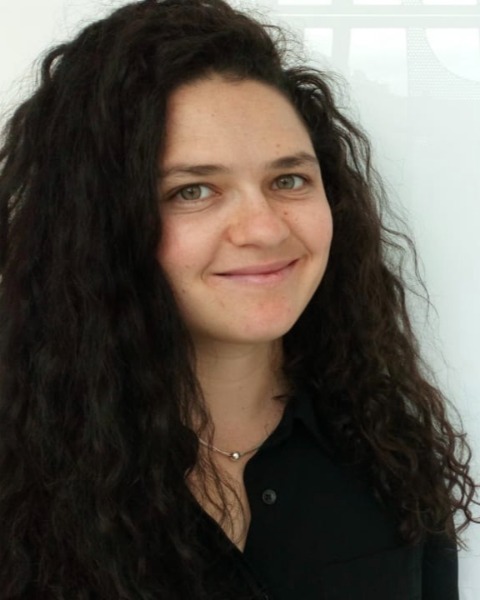Category: Dissemination & Implementation Science
Symposium 96 - Multilevel Determinants of Evidence-Based Practice Implementation: From the Structural to the Individual
Level of Familiarity: Moderate
Recommended Readings: Luther, L., Gearhart, T., Fukui, S., Morse, G., Rollins, A. L., & Salyers, M. P. (2017). Working overtime in community mental health: Associations with clinician burnout and perceived quality of care. Psychiatric Rehabilitation Journal, 40(2), 252–259. https://doi.org/10.1037/prj0000234, Aarons, G. A., Wells, R. S., Zagursky, K., Fettes, D. L., & Palinkas, L. A. (2009). Implementing evidence-based practice in community mental health agencies: A multiple stakeholder analysis. American Journal of Public Health, 99(11), 2087-2095. https://doi.org/10.2105/AJPH.2009.161711 , Brookman-Frazee, L., Haine, R. A., Baker-Ericzén, M., Zoffness, R., & Garland, A. F. (2010). Factors associated with use of evidence-based practice strategies in usual care youth psychotherapy. Administration and Policy in Mental Health and Mental Health Services Research, 37(3), 254–269. https://doi.org/10.1007/s10488-009-0244-9, Eslinger, J., Sprang, G., Ascienzo, S., & Silman, M. (2020). Fidelity and sustainability in evidence-based treatments for children: An investigation of implementation determinants. Journal of Family Social Work, 23(2), 177-196. https://doi.org/10.1080/10522158.2020.1724581, Durlak, J.A. & DuPre, E.P. (2008). Implementation matters: A review of research on the influence of implementation on program outcomes and the factors affecting implementation. American Journal of Community Psychology, 41(3-4), 327-350. https://doi.org/10.1007/s10464-008-9165-0
-
BS
Briana S. Last, Ph.D. (they/them/theirs)
Inclusion, Diversity, Equity, and Access Fellow
Stony Brook University
Stony Brook, New York -
SD
Shannon Dorsey, PhD (she/her/hers)
Professor Department of Psychology
University of Washington
Seattle, Washington -
AL
Aaron Lyon, Ph.D. (he/him/his)
Professor
University of Washington
Seattle, Washington -
BS
Briana S. Last, Ph.D. (they/them/theirs)
Inclusion, Diversity, Equity, and Access Fellow
Stony Brook University
Stony Brook, New York -
SY
Stephanie Yu, M.A.
Doctoral Candidate
University of California, Los Angeles
LOS ANGELES, California -

Simone Schriger, M.A. (she/her/hers)
Doctoral Candidate
University of Pennsylvania
Los Angeles, California
Chair(s)
Discussant(s)
Presenter(s)
Only 1-17% of people seeking mental healthcare receive evidence-based practices (EBPs; Hooley et al., 2023). There are numerous reasons for this research-to-practice gap that begin at the structural level. Structural barriers impact the delivery of EBPs in real-world mental health settings. For example, when resources are limited, mental healthcare clinicians may not receive adequate training or consistent supervision in EBPs. Resource scarcity also results in high work demands for clinicians, leading to burnout and distress. Clinician burnout is associated with negative attitudes toward EBPs and perceptions of delivering lower quality care (Barnett et al., 2017; Luther et al., 2017). Further, EBPs developed in research settings can lack fit with clients’ social contexts, leading many clinicians to either not use EBPs or make adaptations to treatment with differential impacts on care delivery. Finally, even with supportive structural and organizational contexts, individual clinician behavior change is difficult. This symposium presents a range of mixed-methods and community-partnered investigations from across sectors and the globe that examine how these multilevel factors impact EBP use in real-world settings.
Consistent with ABCT’s convention theme, this symposium centers the lived experiences of diverse professionals (from school professionals and public mental health therapists in the U.S. to healthcare workers in the Dominican Republic) in implementing EBPs in community settings. This symposium also identifies multilevel barriers facing mental health professionals and multilevel implementation strategies that have the potential to cultivate well-being—and, even joy— for clients and their healers. Second, we present qualitative findings from a study that examines 18 New York City public mental health clinicians’ session planning practices. Therapists reported significant multi-level barriers to EBP session planning and generated implementation strategies to support their EBP use. Third, we present an examination of therapist adaptations to TF-CBT. Forty-six public mental health therapists provided audio recordings of 190 TF-CBT sessions delivered with 82 racially/ethnically diverse clients. Investigators coded therapists’ TF-CBT adaptations and analyzed client and therapist factors associated with these adaptations. Fourth, we present a mixed-methods study of 200 healthcare workers in the Dominican Republic. Findings from this study reveal that healthcare workers experience significant burnout and mental health symptoms, which impede their ability to optimally care for their clients. The discussant is a internationally renowned expert in implementation science. The discussant has devoted her career to reducing the research-to-practice gap and implementing EBPs across the globe, particularly in low-resource settings.
First, we present results from a hybrid type 2 cluster randomized control trial of an implementation strategy to support 130 school-based mental health clinicians’ use of trauma-focused cognitive behavioral therapy (TF-CBT). The implementation strategy increased clinicians’ implementation intentions, self-efficacy, and motivation to implement TF-CBT. Learning Objectives:

